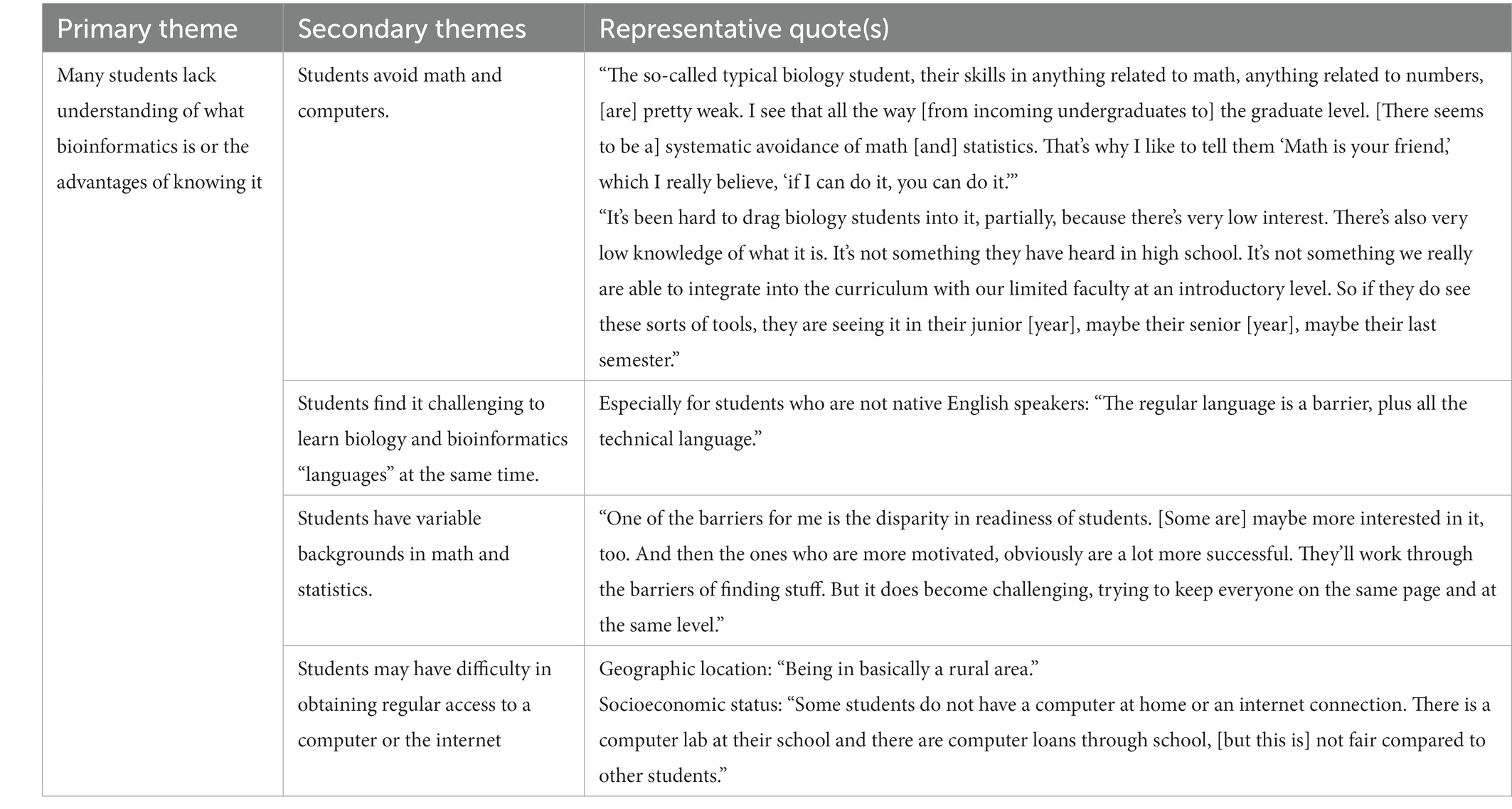Examine This Report on Bioinformatics Tutor
Examine This Report on Bioinformatics Tutor
Blog Article
Not known Details About Bioinformatics Tutor
Table of ContentsThe Of Bioinformatics TutorBioinformatics Tutor Things To Know Before You Get ThisThe 9-Minute Rule for Bioinformatics TutorGet This Report about Bioinformatics TutorBioinformatics Tutor Can Be Fun For Anyone
Of the overall participants associated with the training, 80% were trainees from public college institutions, while the continuing to be 20% came from private organizations. To receive a certification of participation, pupils were required to participate in a minimum of 90% of the total training hours. As a result of this need, a remarkable 95% of the participants efficiently obtained their certifications, having not only satisfied the minimum attendance requirements but likewise finished all assigned tasks throughout the training.
During the height of the COVID-19 pandemic, specifically in between June and August 2020, the project group was tasked with arranging specialized training in bioinformatics. This training was especially focused on students from the study group Core for Research in Applied Computer at the Federal College of Pará (UFRA) The adaptation to remote understanding platforms as a result of the pandemic created a possibility to explore brand-new teaching methods and electronic tools that improved both reach and performance.
To react to the growing demand in the computing and life sciences areas, an innovative course was presented in 2020 labelled Intro to Artificial intelligence. This training course was made to provide an accessible yet comprehensive overview of Artificial Intelligence techniques, specifically as used in bioinformatics. The program was accomplished over three months, from October to December 2020, and was delivered entirely online through the Google Meet system. This online style enabled participation from pupils throughout Brazil, numerous of whom might not have had the possibility to go to in-person sessions.
Bioinformatics Tutor Things To Know Before You Get This
A significant feature of this program was its focus on hands-on knowing. Approximately 50% of the overall training hours were committed to useful tasks where students developed smart models and applications in a variety of scientific domains, consisting of genetics, molecular biology, and environmental information evaluation. Widely utilized tools and frameworks such as Spyder, Google Colab, Jupyter Notebooks, and Orange were incorporated right into the coursework. These platforms allowed pupils to engage in real-time information adjustment, model training, and formula trial and error.
Sixty of them were connected with numerous greater education organizations in the state of Pará, while the staying twenty came from organizations located in five various other Brazilian states. By presenting Artificial Knowledge in a appropriate and practical context, the initiative offered to link the void in between theory and real-world application, providing pupils with a strong foundation for future research or work in the area.
The training effort formed part of a broader academic outreach initiative understood as the Bioinformatics when driving task. This job has, throughout the years, introduced loads of trainees to the world of bioinformatics and computational biology. The occasions held under this umbrella effort have occurred across multiple areas and years, as summarized in Table 1 (Checklist of events, locations, years, and overall numbers of pupils and trainers)
Numerous of these groups, at first brought together by their involvement in training occasions, have actually because gone on to generate independent scientific study in collaboration with regional scholastic institutions. The training not only promoted clinical reasoning within the context of bioinformatics but likewise stimulated joint relationships that extended beyond the training atmosphere.
Fascination About Bioinformatics Tutor
The very same group, omitting IH and RR, also acted as tutors for the practical training components. Funding for the project was provided via the grant 88887.200562/ 2018-00 from CAPES.
The Federal University of Pará's Workplace of Research study (PROPESP/UFPA) look here also gave financial backing, specifically for the manufacturing of the final manuscript. The writers declare no financial or business conflicts of passion that might have influenced the study. All interpretations and viewpoints revealed in this short article are only those of the authors and do not always reflect those of their corresponding institutions, the author, editors, or customers included in the magazine process.

The 4-Minute Rule for Bioinformatics Tutor
From an instructional perspective, the training method made use of in the training was deliberately interactive. Courses were carried out in a manner that encouraged pupil involvement and conversation, exceeding memorizing memorization to check out just how ideas are created, applied in day-to-day live, and tested in academic setups. The instructional ideology focused on supporting both solid and navigate to this website having a hard time pupils, providing personalized assistance, and building confidence with continual mentorship and patience.

Each group, containing around 36 participants, was supported by three mentors-- a lot of whom were postdoctoral researchers with specific proficiency. These mentors not just helped design the team tasks but additionally facilitated their execution, ensuring that each research study question was both pertinent and properly challenging. The goal was to supply a biologically practical context that participants can explore via open-ended purposes and access to curated datasets.
For added insights into the methodology and end results of this project-based understanding technique, readers are routed to S1 Text, which consists of in-depth descriptions of the pedagogical structure, assessment approaches, and project themes used in the training sessions.
Not known Facts About Bioinformatics Tutor
Of the total amount participants involved in the training, 80% were trainees from public greater education and learning institutions, while the staying 20% came from personal institutions. To certify for a certification of participation, students were needed to go to at the very least 90% of the complete training hours. Especially, past the pupils that enrolled in the training sessions, seven experienced instructors took part in providing the programs, while three specialized research study teachers collaborated the general training process. Around 50% of the overall training hours were devoted to functional activities where trainees constructed intelligent versions and applications in an array of clinical domains, including genetics, molecular biology, and environmental information evaluation. The training not just promoted scientific thinking within the context of bioinformatics but also stimulated collective relationships that extended past the training setting.
Report this page